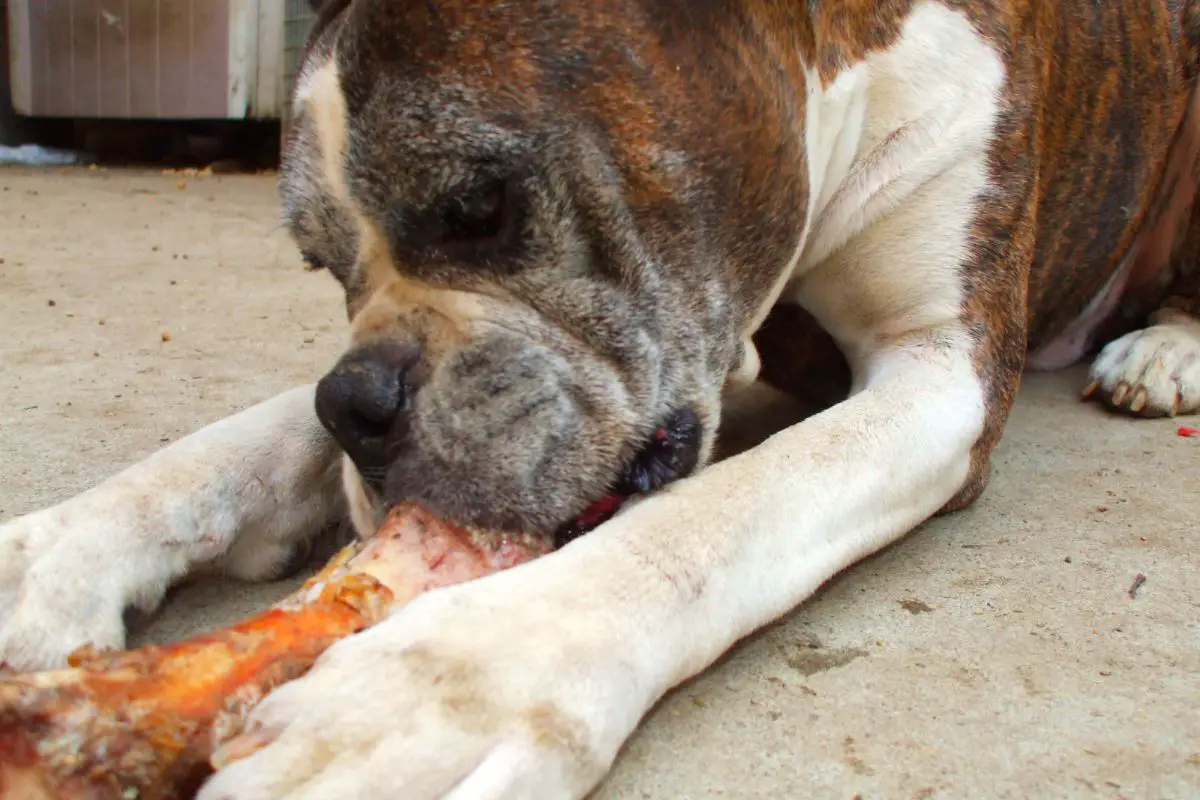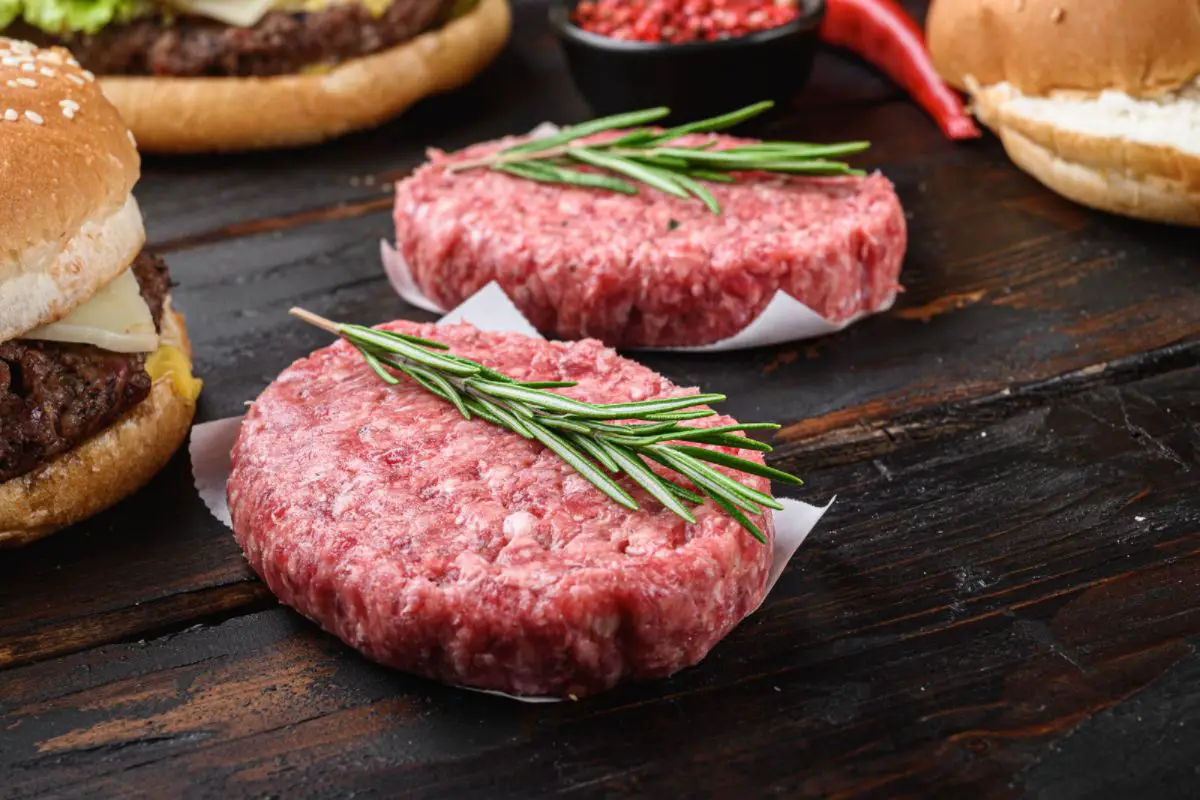This post contains affiliate links.
While animal crackers can be a tasty and nostalgic treat for humans, they are not the ideal treat to share with our K-9 friends. While your dog may be looking at you and drooling while you are enjoying a few animal crackers, it is best to keep these cookies just for yourself. Animal crackers may be safe in the short term but can be damaging to your pet in the long run.
Dogs can eat animal crackers but shouldn’t do so on a regular basis. If your pup eats a few accidentally, he will be safe in the short term. However, prolonged feeding of these sugary, carb-filled cookies is harmful to your dog’s long-term health.
In the rest of this article, we will see what animal crackers contain and why it’s best to find an alternative treat for your pet. We will understand a dog’s nutritional needs better so you can make the best choice for your pet’s long-term health. We will also see a few suggested treats you likely have at home and can begin feeding your pet in moderation.
Table of Contents
Animal Cracker Ingredients
A typical box of animal crackers will contain the same basic ingredients. While none of these usual ingredients are considered toxic or poisonous, except the rare artificial sweetener, they are not considered healthy for a dog. Let’s take a look at each of these common ingredients more closely.
Sugar and High-Fructose Corn Syrup
One reason humans (and dogs) may crave animal crackers is because of the considerable sugar content. Humans can recognize that while sugar can be delicious, it is something to be consumed with awareness and restraint. Dogs will not have the same awareness around this sweet ingredient and can become addicted to the substance just like humans.
The health risks of consuming too much sugar on a regular basis can be severe. Blood sugar issues, including diabetes and weight gain, are problems for both humans and dogs alike when eating too much sugar. However, as humans are generally much larger than dogs, the same amount of sugar will impact a dog more severely.
A dog’s natural dietary needs do not involve processed sugar. There is no biological reason to feed your dog a treat that contains refined sugars. In order to keep your pup healthy, simply avoid giving your pet human foods that contain sugar in any form.
Remember, for both you and your pup, sugar can be seen under many names these days. If you look at the nutrition facts on your box of animal crackers, you may not see “sugar” listed. However, other ingredients like high-fructose corn syrup serve the same purpose and are just as unhealthy as regular refined sugar.
All-Purpose Flour
One of the main components of your animal crackers will likely be all-purpose flour or some other kind of wheat. This ingredient is carbohydrate-rich and provides more carbs than any dog needs.
Just like with humans, eating too many carbs can lead to weight gain and other health problems. While eating a few animal crackers may not cause a human to gain much weight, dogs cannot handle the same amount of carbs and may gain weight more easily.
For pets, weight gain can be a health danger. While we love to treat our animals, giving them treats rich in carbs can lead to weight-related health issues later on.
Salt
Animal crackers, like most processed foods for humans, will contain salt. Dogs are not built to consume salt the way we are, and their bodies cannot handle the same quantities that humans can. If you feed your dog a surplus of animal crackers, the salt in them could cause dehydration that will trigger thirst in your dog.
Over-consuming water in response to dehydration can be dangerous to your K-9, causing them to take in too much air in their stomach. The stomach is in danger of twisting if this happens. This serious condition is called gastric dilatation-volvulus, otherwise known as bloat. This can be a deadly condition. If you suspect your dog has become dehydrated and is consuming water unnaturally fast, it is best to seek veterinary care immediately.
Preservatives and Chemical Additives
As with many processed foods, it would not be surprising if your animal crackers contained some added preservatives. These chemicals serve to make the crackers last longer on the shelf as well as make the flavors more intense and addictive.
However, for both humans and dogs alike, the links between chemical consumption and health risks like cancer are increasing. For your health and the health of your dog, think twice before consuming processed food.
Artificial Sweeteners
If you are enjoying a box of sugar-free animal crackers that have used an artificial sweetener, this can be immediately dangerous for your dog. While all sugar substitutes should be avoided, there is one in particular that can be particularly dangerous.
The name of the sweetener is Xylitol and can cause immediate liver damage to your dog. This damage can be deadly and can happen very fast. It is most commonly associated with dental hygiene products, such as toothpaste or gum. However, it is possible to find Xylitol in foods as well. Be sure that you never feed your dog any snack that contains this deadly artificial sweetener.
Healthy Treats for Your Dog
If you’re looking for an easy treat that you can give to your dog without worrying about health risks, you have many options available to you. Of course, there are countless brands of healthy, natural dog treats available at your pet store. However, if you are looking for something quick that you may already have at home, I have some options for you.
Fresh, Crunchy Vegetables
If you always have a fridge full of vegetables, there are likely some you can slice up and share with your dog. Slices of carrot or pepper (bell and sweet peppers, not spicy) can be a tasty treat that your dog will gobble up. The crunch can be satisfying, and your pet may soon be begging for more.
Other crunchy vegetables that are safe for your pup include sliced celery or cucumbers. Sweet potatoes are another safe and nutritious food your dog can snack on. However, these need to be cooked first. You can steam or boil these sweet potatoes in order to properly prepare them for your dog.
Select Fruits
There are some fruits that your dog can eat and may end up loving. Apples, for example, are a safe treat for your dog that can deliver a satisfying crunch. These sweet treats can even help with digestion and dental hygiene.
Blueberries can be another popular choice. These are the perfect size for a tiny treat and don’t require any slicing or preparation. If blueberries are readily available in your area, you can feed them to your dog in moderation. These antioxidant-rich foods are also high in fiber, which is great for both you and your pet.
Tips for Giving Your Dog Treats
Even with healthy snacks, remember that dogs really should not be receiving too many treats between meals as part of an ideal diet. If you are feeding your dog nutritious meals of the right size, this should take care of all of their physical needs to stay healthy. Adding too many snacks throughout the day, even healthy ones, can be unnecessary.
Many people find treats a helpful training aid. If you are looking to give your dog a food reward in response to good behavior, consider the treats above in small quantities. You can slice these mentioned fruits or vegetables into very small pieces. This way, you are able to give your dog the satisfaction of a reward without too much caloric impact.
Final Thoughts
If you were wondering if your dog is safe after eating a few animal crackers, you can rest assured that your pet will be fine. As long as they are naturally sweetened, there is no risk of poison for your dog.
However, remember that your pet will likely suffer health consequences if he or she continues to consume these unhealthy snacks in the long term. You can make natural, healthy choices when it comes to feeding your dog a treat.
Related Articles
- Can Dogs Eat Artichokes? (We Ask the Experts)
- Can Dogs Eat Asparagus? (We Asked the Experts)
- Can Dogs Eat Basil? Here’s What the Expert Says
- Can Dogs Eat Bell Peppers? We Asked the Experts
- Can Dogs Eat Black Licorice? Read This First!
Sources
- Dog Food Insider: List of Dangerous Foods for Dogs
- Healthy Home-Made Dog Treats: Can Dogs Eat Animal Crackers?
- The Farmer’s Dog: Top 14 Fresh Snacks for Dogs
- Quora: Is it Safe For Dogs to Eat Animal Crackers?
- Veterinary Medical Center of CNY: Gastric Dilatation-Volvulus
Mrdogfood.com is a participant in the Amazon Services LLC Associates Program, an affiliate advertising program designed to provide a means for sites to earn advertising fees by advertising and linking to Amazon.com. We also participate in other affiliate programs which compensate us for referring traffic.





